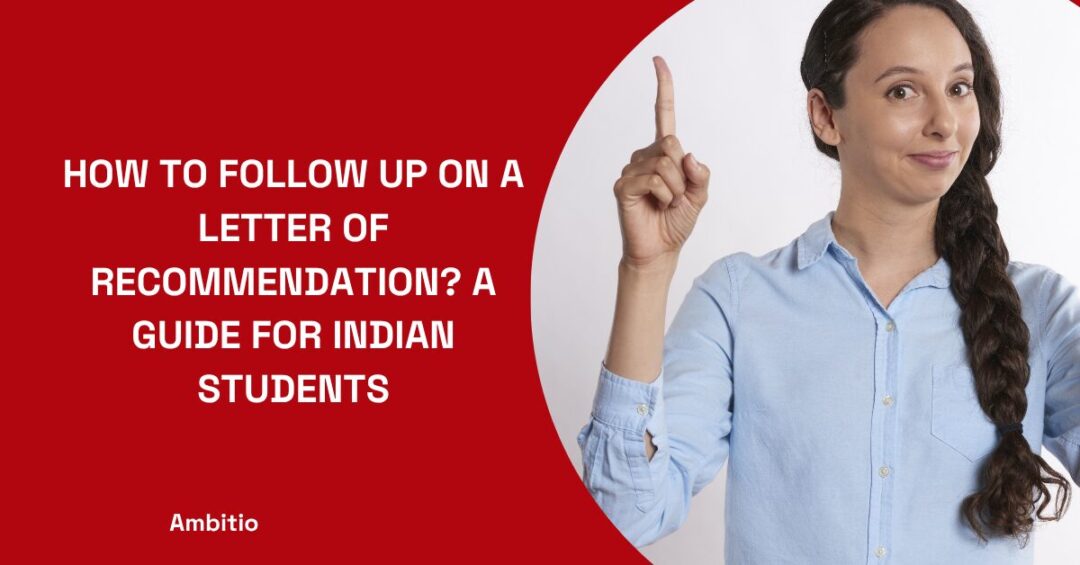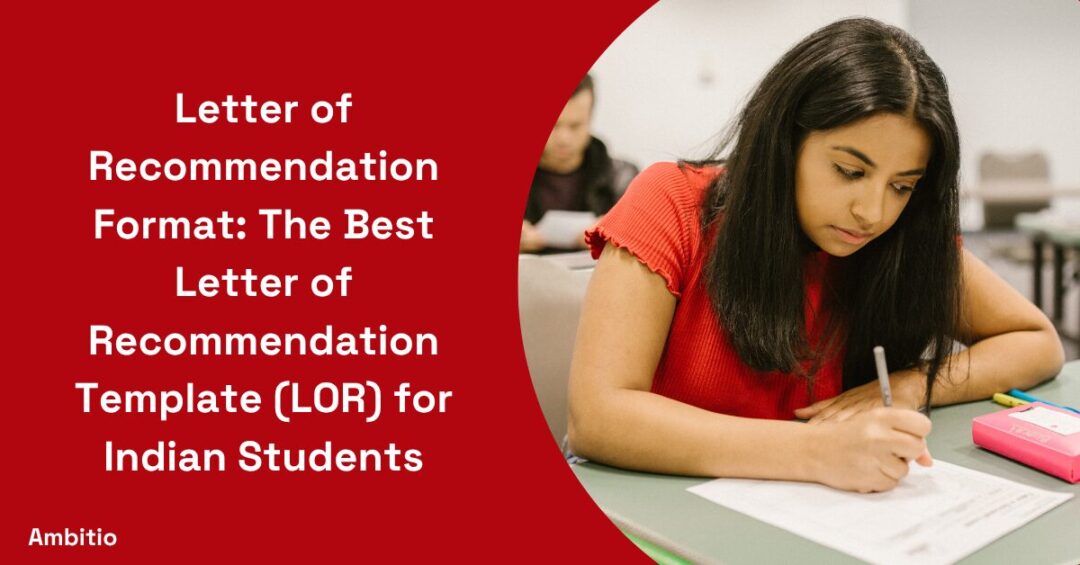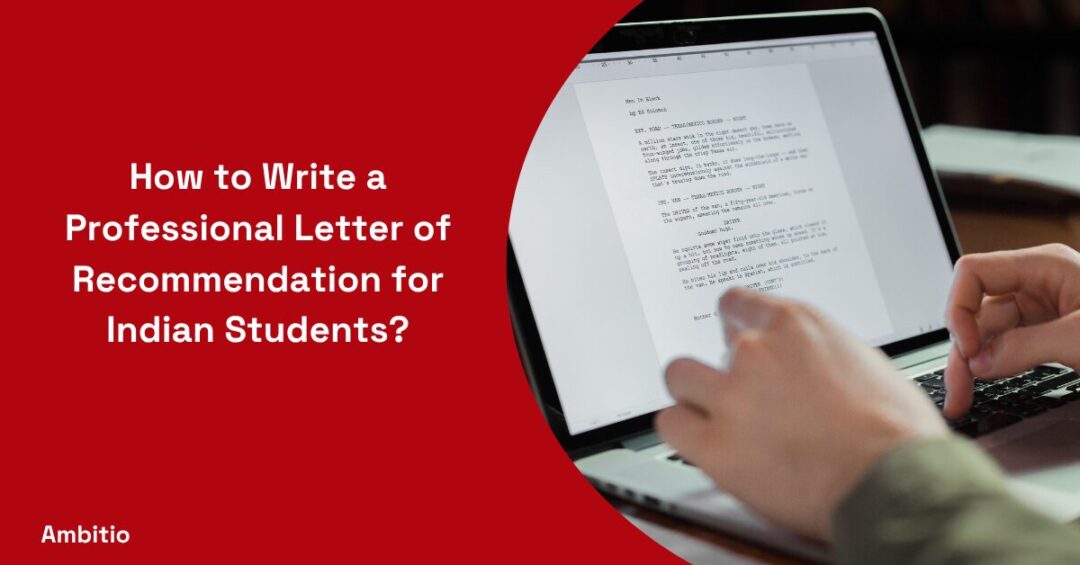11 July 2025
4 minutes read
How To Write A letter Of Recommendation For Indian Student To Study Abroad?
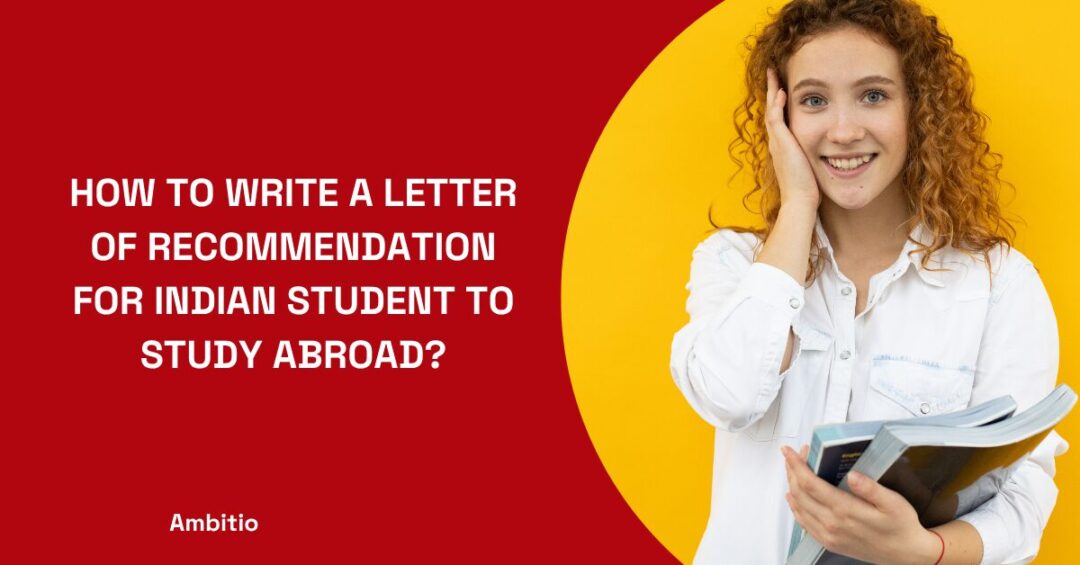
Key Takeaways
- A well-written letter of recommendation for student to study abroad can significantly impact the admission decision.
- Explain your relationship, showcase academic strengths, and use specific examples to make the LOR credible.
- Include extracurriculars, leadership skills, and fit for the program to show all-round potential.
Every year, thousands of Indian students dream of higher education at top universities abroad—but many lose their shot not because they lacked qualification, but because their letter of recommendation read like a half-hearted reference letter. Most LORs? Filled with vague praise, zero specific examples, and written by a supervisor who barely remembers the applicant‘s teamwork or work ethic. That’s the brutal reality.
But here’s the fix: writing a LOR that impresses an admission committee isn’t rocket science. With a thoughtful draft, the right examples that illustrate leadership skills or extracurricular strengths, and an engaged recommender who can provide specific insights—you can craft a strong recommendation that boosts study abroad chances, supports your visa process, and actually gets read.
What Is A Study Abroad Letter Of Recommendation (LOR)?
A study abroad Letter of Recommendation (LOR) is a formal document written by someone who can vouch for the applicants abilities, character, and potential to succeed in a global academic environment. It is usually required during the undergraduate study admission process and is submitted along with other documents to support the candidate’s overall profile.
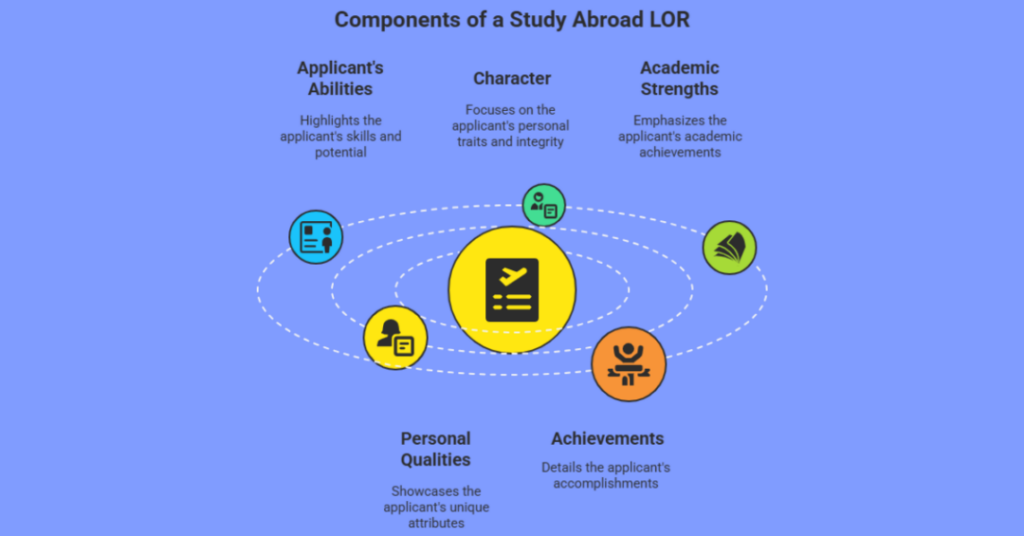
A well-written LOR should emphasise the applicant‘s academic strengths, personal qualities, and achievements, offering insights that go beyond grades and test scores. It helps the admissions team understand how the student may contribute to the university both inside and outside the classroom.
6 Elements To Include In A Recommendation Letter For A Student
Most recommenders are either “struggling to improve” a half-baked sample recommendation or copy-pasting from a random recommendation example online. But here’s the kicker—this document can make or break an entire application process. Whether it’s an LOR for business school, master’s program, or a study abroad program, a compelling recommendation gives admissions officers a reason to say yes. So if you’re a teacher, project guide, or mentor, and want to learn how to write the perfect LOR, here are six key elements you must include.
1. A Precise Introduction That Explains Your Relationship
Start with a clear line on how you know the student well—mention if you were their teacher, project guide, or mentor during a course of study. This helps frame your recommendation for a student with authority and context, a vital part of any ideal LOR.
2. Highlight the Student’s Academic Achievements
Any recommendation letter for a student without real academic achievements is just fluff. Discuss their performance in specific subjects or projects—especially if they’re applying for a graduate program or a competitive master’s program at a reputed university.
3. Main Strengths Backed By Examples
Generic praise doesn’t work. Instead, pick 2–3 main strengths and link them to achievements using real incidents—bonus points if you emphasise qualities like analytical thinking, work performance, or leadership qualities that are relevant to the particular program.
4. Talk About Extra-curricular Activities Outside the Classroom
Universities look for more than just grades. An effective recommendation should show how the student contributed outside the classroom—sports, community service, leadership roles—these speak volumes in the eyes of the admission committee.
5. Mention the Student’s Fit for the Program and Future Potential
Admissions teams want to know if the student’s academic background, attitude, and curiosity align with the program at your esteemed university. This is your chance to show their potential to excel and explain why they’d be a perfect fit for the graduate studies or course at your university.
6. A Strong Closing That Reflects Confidence
End with a crisp, confident statement recommending the student without hesitation. Think of this as the final push that convinces admissions officers. Reference your availability for any frequently asked questions and tie it back to their readiness for IELTS, international standards, and the cultural diversity of a study abroad program.
What Are The Other Documents Required For Admission In Study Abroad Programs?
LOR is enough? Lol, if only. If you think a Letter of Recommendation alone will get you into a study abroad program, you’re in for a surprise. Getting into an esteemed university is like assembling IKEA furniture—miss one bolt (or document), and the whole thing wobbles. Beyond your perfect LOR, admissions officers expect a full package that shows your academic or professional potential, language skills, and intent.
Here’s a clean table that breaks it down:
| Document/Exam | Purpose |
|---|---|
| Statement of Purpose (SOP) | Shows your goals, motivation, and why you chose that particular program |
| Letters of Recommendation (LORs) | Endorsements from professors or supervisors validating your potential |
| Academic Transcripts | Proof of academic achievements from your current or previous institutions |
| Standardized Test Scores | GRE / GMAT for graduate studies, SAT / ACT for undergraduate study |
| English Proficiency Tests | IELTS / TOEFL / Duolingo to prove you’re ready for an English-speaking course |
| Resume/CV | Overview of your work performance, extracurricular achievements, and skills |
| Passport Copy | Identity document required for university processing & visa application |
| Portfolio (If Required) | For creative or design programs—your best work samples |
| Application Form | Each university has its own; must be filled with accurate info |
| Financial Documents | Proof you can fund your education—essential for both get admission and visa |
Conclusion
It is the only document that speaks about you rather than from you. That’s what makes it powerful. But power lies in details. Whether you’re the recommender or the applicant, don’t treat it like a formality. A thoughtful, specific, and well-structured LOR can do what scores sometimes can’t—build trust in your story.
And remember, applying abroad isn’t about chasing perfection. It’s about putting together a strong, honest, and complete application. One that shows you’re not just ready for a university—but that you’ll add to it.
And remember: even if the grades aren’t perfect, a strong letter can make a student like Rohan unforgettable to the admissions committee. So, choose Ambitio, secure your future, and make your dreams come true.
FAQs
Which countries are popular for Indian students to study abroad?
Popular destinations include the USA, Canada, UK, Australia, Germany, and France due to quality education and scholarship opportunities
What are the basic academic eligibility requirements?
For undergraduate courses, completion of 10+2 with 60-85% marks is usually required; for master’s, a recognized bachelor’s degree with 60-70% marks; PhD requires a master’s degree and research proposal
How early should I start planning to study abroad?
Start at least 12 to 18 months before your intended intake to prepare for tests, applications, scholarships, and visa processes
Do I need a student visa to study abroad?
Yes, for most long-term courses a student visa is mandatory. Short-term exchanges (under 3 months) may require only a tourist visa
Can Indian students work while studying abroad?
Yes, but work hours are limited (usually up to 20 hours per week during term time). Income should not be relied upon to cover all expenses
Are scholarships available for Indian students?
Yes, many universities and external organizations offer scholarships, fellowships, and grants specifically for Indian students

You can study at top universities worldwide!
Get expert tips and tricks to get into top universities with a free expert session.
Book Your Free 30-Minute Session Now! Book a call now















